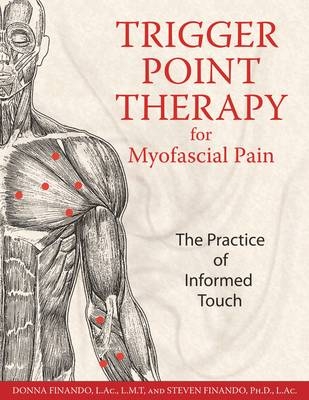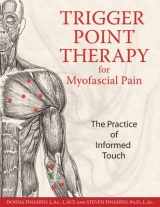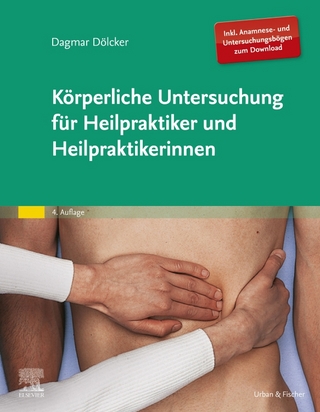Trigger Point Therapy for Myofascial Pain
Healing Arts Press (Verlag)
978-1-59477-054-8 (ISBN)
Myofascial pain syndromes are among the fastest growing problems that physicians osteopaths acupuncturists and physical occupational and massage therapists encounter in their patients. In TRIGGER POINT THERAPY FOR MYOFASCIAL PAIN Donna and Steven Finando have organized vast amounts of information on treating myofascial pain into an accessible user's manual for healthcare practitioners. They examine a wide range of pain patterns and present evaluation and palpation techniques for reducing trigger points - and thereby alleviating pain - in the most clinically significant musculature of the body.
This comprehensive yet easy-to-use reference guide to treatment of muscle pain begins with chapters on the concept of Qi and its relationship to myology specific trigger point location and activation and palpatory skill-building techniques. Subsequent sections provide detailed information on each muscle to teach clinicians to locate quickly and accurately individual points of pain and compensation. A visual index allows easy identification of the muscles that may be involved. TRIGGER POINT THERAPY FOR MYOFASCIAL PAIN provides necessary and invaluable information for sufferers and any professional involved with myofascial disorders.
Donna Finando, L.Ac., L.M.T., has taught myology and myofascial meridian therapy throughout the country for more than twenty years. Steven Finando, Ph.D., L.Ac., is currently on the advisory board for the New York Chiropractic College School of Acupuncture and Oriental Medicine. Both studied extensively with Janet Travell, M.D., a pioneer in the field of pain management. Donna and Steven live on Long Island, New York, where they have been in continual practice for the past 29 years.
Acknowledgments
Introduction: A Gathering of Forces: Toward an Era of Interdisciplinary Cooperation in the Treatment of Pain
Chapter 1 The Nature of Muscles and Trigger Points
Chapter 2 Qi, Movement, and Health
Chapter 3 Informed Touch
Chapter 4 Diagnosis and Treatment
Chapter 5 How to Use This Manual
Muscles of the Head, Neck, and Face
Sternocleidomastoid • Scalenes • Splenius Capitis • Splenius Cervicis • Posterior Cervicals • Temporalis • Masseter • Pterygoids
Muscles of the Shoulder Girdle
Trapezius • Levator Scapulae • Rhomboids • Serratus Anterior • Pectoralis Minor
Muscles of the Upper Limb
Pectoralis Major • Deltoid • Latissimus Dorsi • Teres Major • Supraspinatus • Infraspinatus • Teres Minor • Subscapularis • Biceps Brachii • Triceps Brachii • Brachialis • Brachioradialis • Hand and Finger Extensors • Hand and Finger Flexors
Muscles of the Torso
Erector Spinae • Quadratus Lumborum • Iliopsoas • Rectus Abdominis • Abdominals
Muscles of the Lower Limb
Gluteus Maximus • Gluteus Medius • Gluteus Minimus • Tensor Fasciae Latae • Piriformis • Hamstrings • Quadriceps • Adductors • Pectineus • Gracilis • Sartorius • Popliteus • Gastrocnemius • Soleus • Tibialis Posterior • Tibialis Anterior • Peroneal Muscles • Long Extensors of the Toes • Long Flexors of the Toes
Appendix 1: Meridian Pathways
Appendix 2: On Cutaneous Zones
Appendix 3: Commonly Used Acupoints
Pain Pattern Index
Symptom Index
Bibliography
| Erscheint lt. Verlag | 26.8.2005 |
|---|---|
| Verlagsort | Rochester |
| Sprache | englisch |
| Maße | 216 x 279 mm |
| Gewicht | 1 g |
| Themenwelt | Sachbuch/Ratgeber ► Gesundheit / Leben / Psychologie ► Alternative Heilverfahren |
| ISBN-10 | 1-59477-054-9 / 1594770549 |
| ISBN-13 | 978-1-59477-054-8 / 9781594770548 |
| Zustand | Neuware |
| Haben Sie eine Frage zum Produkt? |
aus dem Bereich




